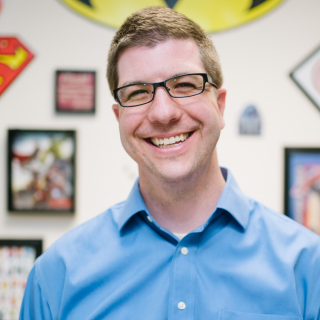
If you're like me, you've probably noticed how screwed up our health care system is (understatement of the day). The sporadic, inconsistent, and unjust allocation of our health care resources (e.g., money and access to services) defies logic, efficiency, and efficacy. There are so many health care entities each taking their own piece of the financial and care pie, each marking up their own work and services, none of whom have any incentive to keep costs in check or work in concert with one another.
Not only this, but each time health care costs are stabilized or decrease, it never trickles down to the patient, whose premiums continue to rise even in years when the growth of health care costs is comparable to inflation and gross domestic product growth. Volumes have been written on this topic, so my 600-plus words here won't do it full justice (pun intended). This is but a small piece of my continuing series on the efficiency of the health care system. I'll focus mainly on the justice (or lack thereof) of our health care system.
The philosopher and ethicist John Rawls wrote a groundbreaking treatise on social justice in the early 1970s entitled Justice as Fairness. He uses the "social contract" as a base argument: the notion that we owe certain things to each other through a governmental influence to ensure that our rights are protected. The social contract is a basic principle of the various forms of government in the Western world over the last 200-plus years. Rawls builds on this notion by stating that 1) every individual has the same right to basic liberties, and that 2) the greatest benefits should be available to the most disadvantaged.
While the basic values of our country's founding do not differ much from this concept, the way in which it would be implemented do. As you could guess, a political liberal sees this as the responsibility of the government, whereas politically conservative individuals see this as best accomplished through the "invisible hand" of a capitalistic economy. Societal fairness is not partisan, only the accomplishment of it is. Is that the only reason that we have not achieved a modicum of fairness in providing for the basic health care needs of our citizens?
Victor Fuchs, the initial inspiration for my current series on the efficiencies of the US health care system, described such misallocation of resources for such an important area of life as possibly the biggest inefficiency in our health care system. "Medical resources are probably not applied where they might have the most effect on health outcomes." Why not? Is it an over-reliance on our free-market economic principles? Is it our inherent distrust of governmental influence over our lives?
I believe that our differing views on how to achieve fairness inherently comes from a dispute of the underlying goals for our health care system: we don't know what we want from our system. Is fairness ensuring coverage for everyone? Is it in making health care more affordable so as to bring more people into the system? Is it to focus on health as opposed to health care? Is it about saving lives, improving the quality of life, or extending the length of our lives through different health practices? Is it part of a broader social agenda where the social determinants of health are addressed? The problem is that we don't know.
So, why is the fair allocation of health care resources considered possibly the biggest inefficiency of our system by the leading health care economist in our nation? It's because we can't decide what we want. We could produce any type of financial and social system out there, achieve some of our stated goals, could improve the lives of our citizens. But what does that mean? We have yet to figure that out.
Dr. Kyle Bradford Jones is a board-certified family physician at the University of Utah School of Medicine. He practices at the Neurobehavior HOME Program, a patient-centered medical home for individuals with developmental disabilities. He is very interested in how technology and social media can be used to improve overall health and clinical care.
Dr. Jones is a 2018–2019 Doximity Author.







